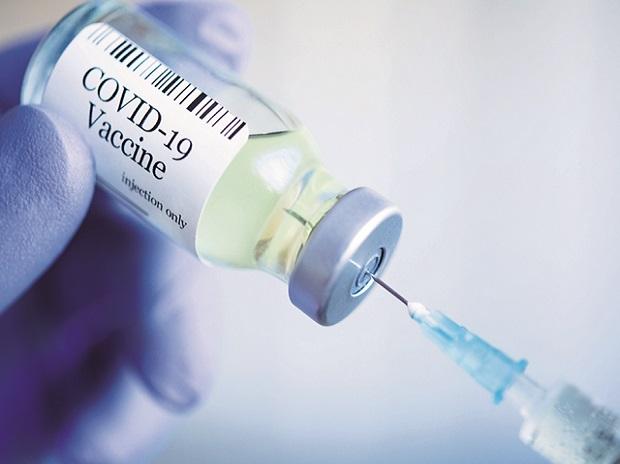Israel Researchers Warn That IBD Patients Taking Tumor Necrosis Factor Inhibitor Drugs Will Experience Decreased COVID-19 Vaccine Efficacy
Source: IBD and COVID-19 Sep 07, 2021 4 years, 3 months, 2 weeks, 2 days, 21 hours, 12 minutes ago
IBD-COVID-19: A new study by researchers from Israel has found that patients with inflammatory bowel disease (IBD) taking tumor necrosis factor (TNF) α inhibitors will experience decreased COVID-19 vaccine efficacy.

The study findings were published on a preprint server and are currently being peer reviewed.
It is already known that IBD patients treated with immunomodulatory drugs such as tumor necrosis factor (TNF) α inhibitors, potentially have an increased risk of infection.
Initial clinical trials of the Pfizer-BioNTech mRNA vaccine excluded such individuals. Thus the efficacy of the available COVID-19 vaccines amongst those with compromised immune responses due to anti-TNFα medication is in question.
In this
IBD-COVID-19 study, the efficacy of the mRNA vaccine is examined amongst IBD patients and compared with healthy volunteers.
Importantly the study team observed reduced efficacy amongst those receiving anti-TNFα medication.
IBD patients and healthy volunteers without any gastric issues were recruited for the study, none of which had previously been infected with SARS-CoV-2 or received the vaccine. IBD patients were further categorized between those receiving no treatment, anti-TNFα medication, or any other treatment regimen.
All study participants were vaccinated with two doses of the Pfizer-BioNTech vaccine. Blood samples were collected before the first, before the second, and around one month after the second dose. SARS-CoV-2 neutralizing IgG antibodies to the spike and nucleocapsid were measured, along with the presence of any anti-TNFα medication and antibodies towards the medication.
Upon administration of the first dose of the vaccine, the study found that individuals receiving anti-TNFα medication expressed significantly lower SARS-CoV-2 anti-spike IgG antibodies than other participants: around two-fold lower than untreated IBS patients and 3-fold lower than healthy volunteers. The second dose of the vaccine then induced a ten-fold greater antibody response amongst all participants, though the 2/3-fold difference between groups was maintained.
Detailed neutralizing antibody titers were also assessed by enzyme-linked immunosorbent assay and showed a similar trend, wherein antibodies gathered from patients receiving anti-TNFα medication exhibited significantly lower neutralization capacity, the difference becoming more notable following the second dose of the vaccine. Interestingly, antibodies collected from IBS patients receiving other medication (non-anti-TNFα biologics, steroids) also showed an impaired ability to inhibit receptor binding domain – ACE2 bonding compared to healthy controls.
The study team next utilized sample sera in SARS-CoV-2 pseudoparticle neutralization assays to demonstrate the functional activity of the vaccine.
The sera collected before vaccine administration showed no neutralization capacity towards the pseudo particles, as expected, while levels rose to 65% and 97% neutralization capacity amongst healthy volunteers following the first an
d second doses, respectively.
The study findings showed that IBS patients receiving non-anti-TNFα medication showed similar but slightly impaired neutralization capacity, reaching 96% after the second dose of the vaccine.
However IBD patients receiving anti-TNFα medication saw only 51% and 79% neutralization capacity after the first and second doses, respectively. This lower capacity may later reflect in shorter periods of functional protection provided by the vaccine, meaning that patients receiving immunocompromising medication such as this may need to receive more regular COVID-19 boosters going forwards. However, the length of protection granted was outside the scope of this study.
It was also found that besides the lower IgG titers and neutralizing capacity amongst those receiving anti-TNFα drugs, 7% of all patients in this group remained seronegative following administration of the first dose.
Interestingly demographic analysis of the participants revealed that age was the only confounding factor contributing to poor IgG response, besides receiving anti-TNFα drugs, with participants aged over 40 generating a less robust neutralizing antibody titer, as observed in other reports.
Importantly the seronegative amongst the patients receiving anti-TNFα drugs tended to be older, and the authors state that these patients should be amongst the highest priority for booster vaccinations. The frequency and severity of adverse events were similar amongst all groups, IBS-related symptoms were not exacerbated by the vaccine, and in particular, no cardiac events were reported amongst younger participants, suggesting that it is safe for use by IBS patients.
Since the levels of anti-TNFα drugs currently circulating in the bloodstream were also measured, the study team was able to assess whether the drugs were actively interfering with the vaccine in situ, or otherwise blunting the immune response in a less direct manner.
However no correlation between the presently circulating concentration of any anti-TNFα drug and immune response was noted, both before and after each dose of the vaccine, nor was there any difference observed when administering anti-TNFα medication either immediately before or after sera collection.
Also there was also little difference noted between individuals that had only recently begun receiving anti-TNFα medication and those that had already been regularly receiving it for some time.
Hence the drug itself is unlikely to be interfering with the normal mechanism of the vaccine, but the influence of the drug in degrading the immune response is limiting vaccine efficacy.
Examples of commonly used anti-TNFα drugs for IBD include infliximab, adalimumab, certolizumab and golimumab.
The study team concluded, “Our study provides prospective, controlled evidence for the efficacy and safety of the COVID-19 BNT162b2 vaccine in patients with IBD stratified according to therapy. We demonstrate the dynamics of development of functional immune response and the factors causing impairment, specifically anti-TNFα therapy and older age. The lack of correlation with timing of anti-TNFα therapy or drug levels, enables important clinical guidance to patients and their caregivers. As immune response longevity in this group may be limited, vaccine booster dose should be considered.”
For more on
IBD patients and COVID-19 vaccines, keep on logging to Thailand Medical News.
